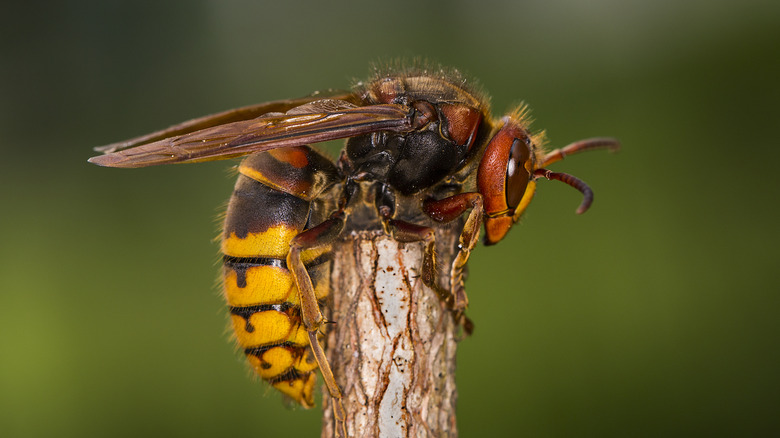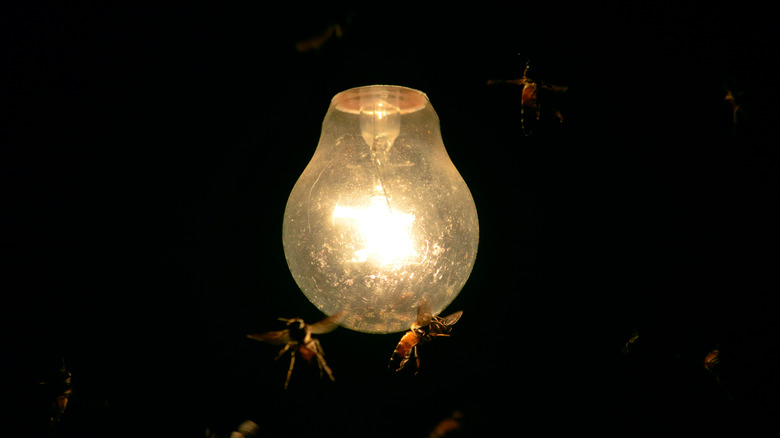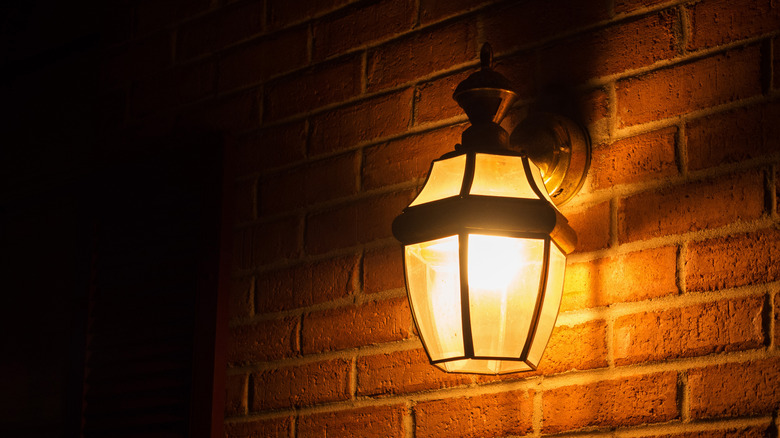The One Habit You're Likely Guilty Of That's Attracting Wasps & Hornets To Your Porch
Warm summer nights are perfect for relaxing on the porch, but by keeping your lights glowing all night, you may be attracting wasps to your home without even realizing it. Believe it or not, outdoor lights are a welcome invitation for stinging vespid insects, especially when combined with other temptations like food and nectar.
Flying insects like hornets, wasps, and yellow jackets are drawn to artificial lights for several reasons, but some lamps are more appealing to them than others. Not only is this a burdensome problem for homeowners, but it is also harmful to the insects as it disrupts their natural behavior patterns. The good news is that you can reduce the presence of stinging insects on your porch by changing your light bulbs and removing other attractants from your outdoor space. Let's get into the reasons why these creatures tend to hover around porch lamps and how you can keep them at bay while protecting their natural habitat at the same time.
Why your porch lights attract stinging insects
Wasps, hornets, and yellow jackets behave like other flying insects, such as flies and moths, around outdoor light sources. The brightness helps them navigate their surroundings and the heat emitted from the light fixture actually increases their energy. Although vespid insects are most active during the day and dormant at night, you may notice them hovering around your porch lights after sundown if there is a food source nearby. Wasps, hornets, and yellow jackets are attracted to human food, open trash bins, and nectar from fruit trees.
It's worth noting that not all stinging insects are attracted to outdoor lights, but common species such as European hornets and bald-faced hornets are. The Entomology — Insect Biology and Management team at North Carolina State University suspects that Asian giant hornets hover around porch lights as well.
It may seem unusual for stinging insects to buzz around your home at night, and that's because it is. Some outdoor light fixtures disrupt their normal behavior. Research published in the Insect Conservation and Diversity journal by the Royal Entomological Society says that artificial light at night, specifically blue and UV lights, significantly interferes with the natural patterns of flying insects. These disruptions cause harm to their population, which is important to avoid even when it comes to pesky hornets and wasps.
How to keep your porch lights on without attracting wasps and hornets
The good news is that you can get rid of wasps around your porch and keep your lights on at the same time simply by changing your bulbs. Lights that produce less heat, like LED lamps, are not nearly as attractive to wasps and hornets. You can also opt for lamps that are yellow-tinted, which are not as visible to stinging insects. According to the Insect Conservation and Diversity study, amber-colored bulbs were far less attractive to flying insects than white and blue lights.
As we mentioned, your outdoor lights may not be the only thing attracting wasps and hornets to your porch at night. Ensure that your garbage bins and food sources are tightly sealed. Keep an eye on stagnant bodies of water and untreated wood around your home, as both tend to attract stinging insects. There are also many natural remedies that will help keep wasps away from your home, such as vinegar, lavender oil, and even dryer sheets. Ultimately, the best way to keep these pesky creatures away from your porch lights is to keep them off as often as possible.


